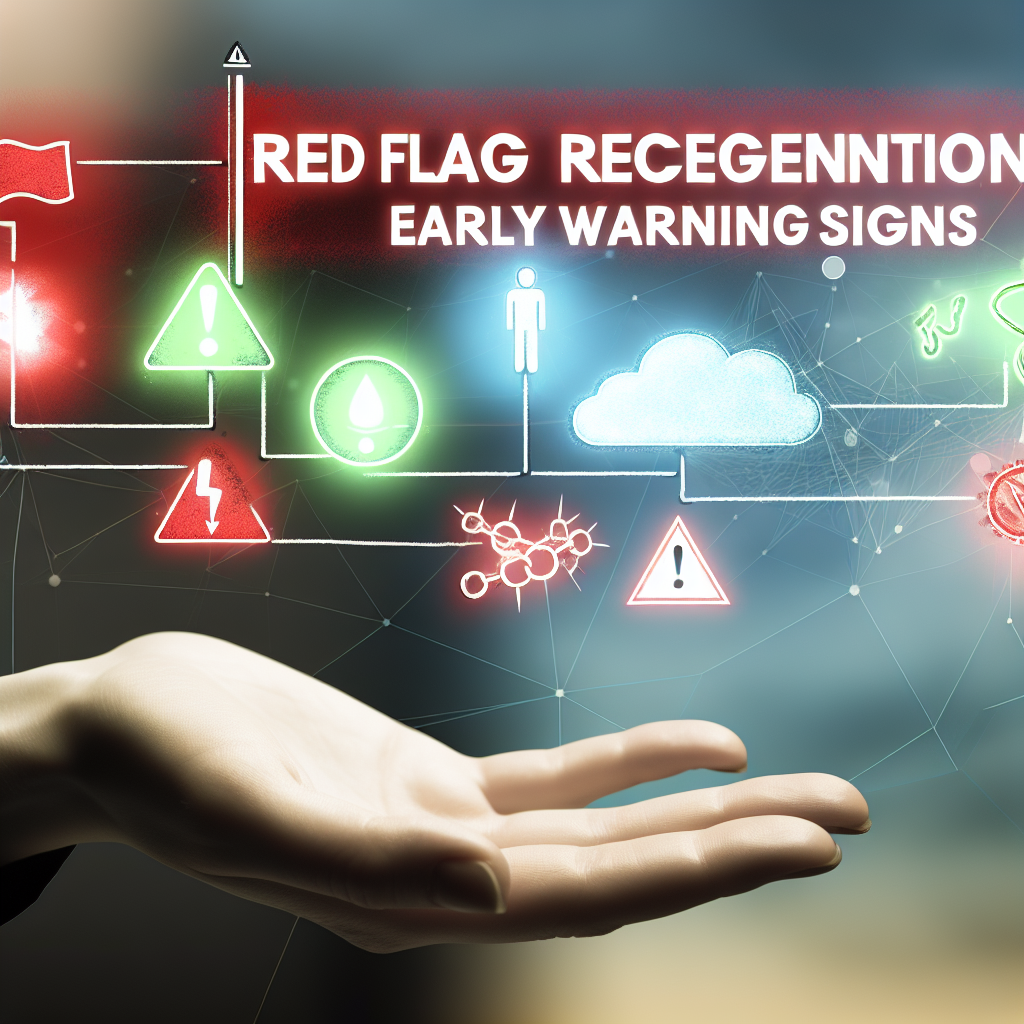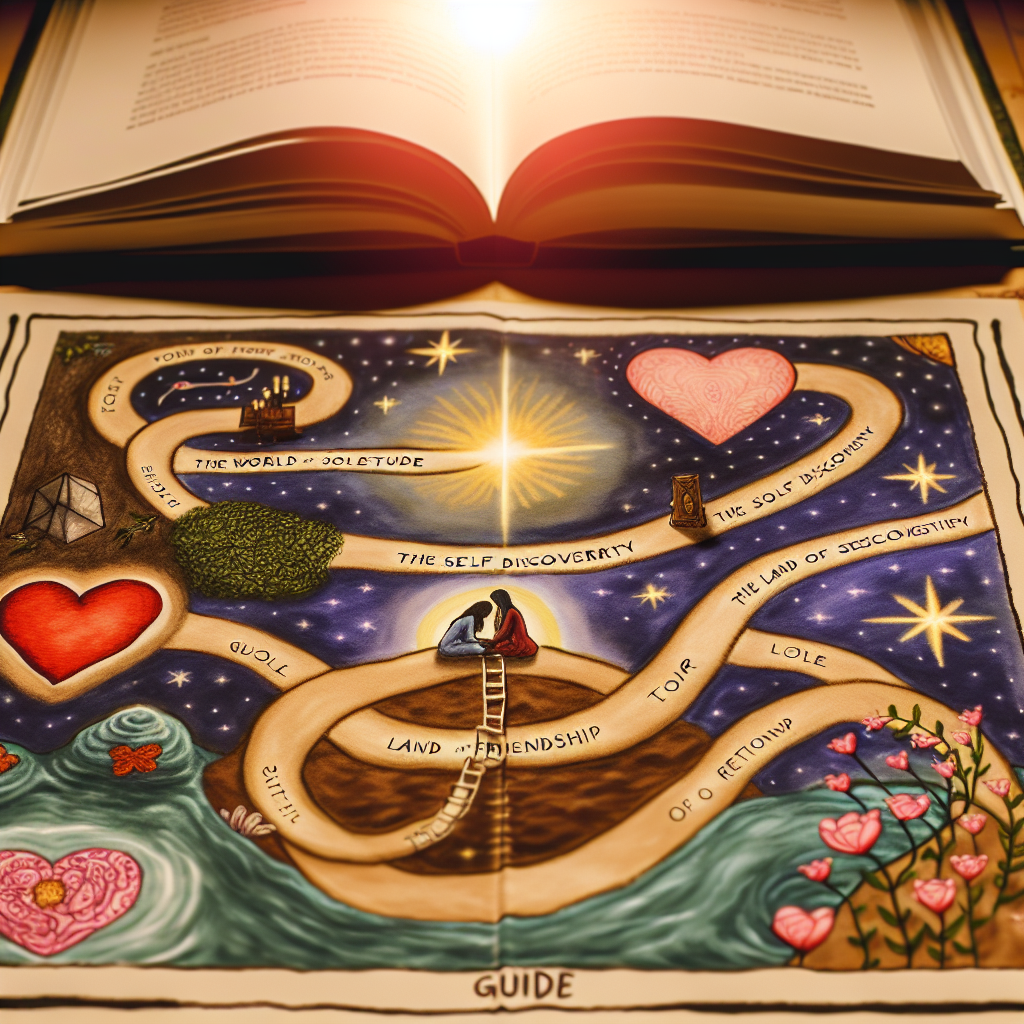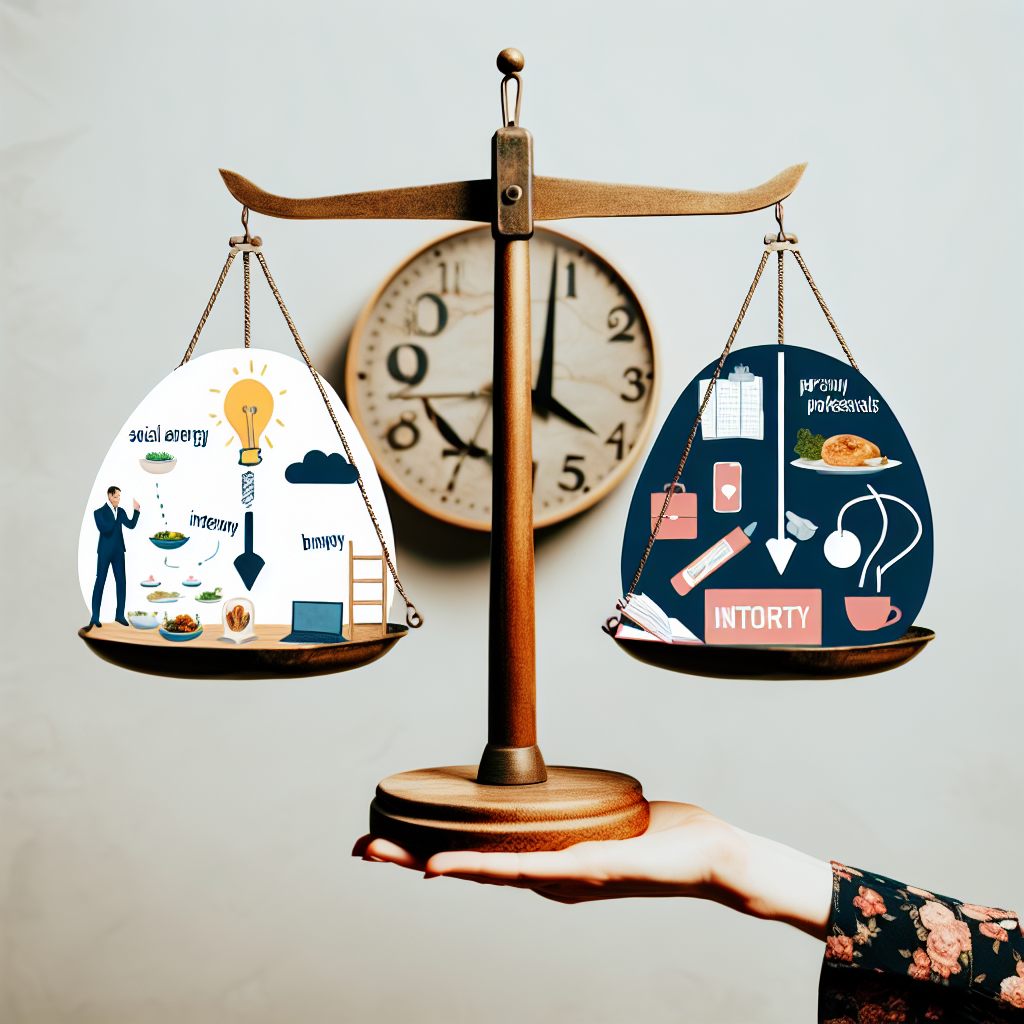Red Flag Recognition: Early Warning Signs in Dating
Introduction: Why Recognizing Red Flags Matters
Navigating the modern dating world can be exhilarating, but it also comes with its fair share of challenges. From first dates to deep emotional connections, singles of all ages—whether just venturing into the dating scene or reentering it after years away—need to be aware of potential red flags in a partner. While attraction and chemistry are crucial for a relationship’s success, ensuring that you’re engaging with someone who is both emotionally and psychologically healthy is just as important.
Red flags in dating refer to warning signs or behaviors that indicate potential issues in a relationship. They can be subtle at first, but if ignored, they may become significant problems that lead to emotional harm, toxic dynamics, or even abuse. Recognizing these warning signs early allows singles to make informed decisions, set healthy boundaries, and avoid investing in a relationship that may not be beneficial in the long run.
Research has shown that people often overlook red flags due to infatuation, fear of loneliness, or belief in potential change. However, according to a study published in the *Journal of Social and Personal Relationships*, early signs of emotional instability, manipulative tendencies, and poor communication patterns are strong predictors of long-term relationship dissatisfaction and failure. By learning to recognize these signs, singles can empower themselves to make safer and healthier choices in dating.
Red flags can take many forms, ranging from subtle manipulations to overt toxic behaviors. Some of the most common include extreme jealousy, lack of communication, controlling tendencies, and unpredictable mood swings. These behaviors can not only indicate potential incompatibility but also suggest deeper personality or emotional issues in a partner that can escalate over time.
Regardless of age, relationship experience, or personal background, every dater benefits from understanding the early warning signs of a potentially unhealthy relationship. Whether you’re casually dating or seeking something serious, developing a keen awareness of red flags can prevent heartbreak and help foster connections built on trust, respect, and emotional stability. In this article, we’ll explore proven research-based warning signs and insights from professionals to help you navigate the dating world safely and effectively.
What the Experts Say About Red Flags
Several psychological and relationship studies have extensively documented the effects of ignoring early red flags. One such foundational study comes from Dr. John Gottman, a renowned psychologist and relationship expert, whose research on couples’ interactions has provided valuable insight into relationship dynamics. According to Gottman’s research, certain behaviors—often seen as red flags in the early stages of dating—are strong indicators of future relationship instability. These include contempt, criticism, stonewalling, and defensiveness (Gottman Institute, 2015). Couples who exhibit these patterns early on are at a much higher risk of conflict, dissatisfaction, and eventual heartbreak.
The Dangers of Narcissistic Traits in Dating
A 2020 study published in *Personality and Individual Differences* explored the role of narcissistic traits in romantic relationships. The study found that individuals high in narcissistic traits often display manipulative behaviors, including love bombing (overwhelming their partner with affection early on), gaslighting (making someone question their perception of reality), and emotional withdrawal. These behaviors, when present at the start of the relationship, tend to intensify over time, leading to controlling and emotionally draining dynamics (Miller et al., 2020).
Inconsistent Communication & Emotional Unavailability
Another significant red flag identified in relationship psychology is inconsistent communication or emotional unavailability. According to Terri Orbuch, Ph.D., a psychologist and relationship researcher, consistent communication and emotional reciprocity are key indicators of a healthy relationship. If someone frequently cancels plans, avoids discussing their emotions, or exhibits distant or detached behavior, it may signal that they are not emotionally ready for a committed relationship (Orbuch, 2013).
Possessiveness and Controlling Behavior: A Serious Warning
Red flags such as possessiveness and controlling tendencies are especially concerning. A 2019 report by the National Domestic Violence Hotline highlights how early behaviors such as excessive texting, tracking whereabouts, or displaying intense jealousy can escalate into more dangerous forms of control and abuse over time. Recognizing these behaviors as early warning signs allows individuals to set appropriate boundaries and protect their emotional and physical well-being.
Lying and Deception: A Predictor of Future Betrayal
Psychologists also point out that patterns of dishonesty—whether lying about small things, hiding details of their personal life, or contradicting past statements—can be a critical red flag signaling deeper issues with trustworthiness. According to studies on trust conducted by the *American Psychological Association*, deception in the early stages of a relationship often predicts future breaches of trust and an overall lack of integrity in communication (APA, 2018).
Why People Ignore Red Flags – And How to Stop
In addition to scientific research, many professional matchmakers and dating coaches echo the importance of recognizing these warning signs early on. According to dating strategist and author Matthew Hussey, individuals sometimes dismiss red flags because they feel emotionally invested in the relationship too quickly. He advises singles to pace their emotional involvement and assess whether the relationship aligns with their personal values before getting too deeply invested.
By understanding the psychological and behavioral patterns associated with relationship red flags, singles of all ages can better equip themselves to make informed dating decisions. A healthy relationship should be built on trust, consistency, and emotional safety—anything that threatens these foundations deserves careful scrutiny and, if necessary, a reassessment of the relationship.
Conclusion: Protecting Your Heart and Future
Recognizing red flags early on in dating can save you from unnecessary heartache, emotional distress, and even toxic relationships that could negatively impact your well-being. Whether you’re in your 20s or navigating love in your 70s, knowledge of these early warning signs is an invaluable tool in ensuring your emotional safety and happiness. While no relationship is perfect, mutual respect, trust, and healthy communication are non-negotiable elements of a successful partnership. By staying vigilant, setting boundaries, and prioritizing self-respect, you can approach dating with confidence and clarity—helping you find a relationship that truly enhances your life.
Summary:
Recognizing early warning signs, or red flags, in dating is crucial for protecting your emotional well-being and avoiding toxic relationships. This article explores the latest research on common red flags, such as narcissistic traits, inconsistent communication, and controlling behavior, and provides insights from relationship experts on how to identify and address these issues. By understanding the psychological and behavioral patterns associated with unhealthy relationships, singles can make informed decisions, set healthy boundaries, and foster connections built on trust, respect, and emotional stability.
References:
– Gottman, J. M. (2015). [The Gottman Institute](https://www.gottman.com/about/research/)
– Miller, J. D., Lynam, D. R., Vize, C. E., Crowe, M. L., Sleep, C. E., & Maples-Keller, J. L. (2020). [ScienceDirect](https://www.sciencedirect.com/science/article/abs/pii/S0191886920300343)
– Orbuch, T. (2013). [Terri Orbuch’s Official Website](https://drterrithelovedoctor.com)
– National Domestic Violence Hotline. (2019). [The Hotline](https://www.thehotline.org/resources/know-the-red-flags/)
– American Psychological Association. (2018). [APA](https://www.apa.org/news/press/releases/stress/2018/lying-relationships)

Dominic E. is a passionate filmmaker navigating the exciting intersection of art and science. By day, he delves into the complexities of the human body as a full-time medical writer, meticulously translating intricate medical concepts into accessible and engaging narratives. By night, he explores the boundless realm of cinematic storytelling, crafting narratives that evoke emotion and challenge perspectives. Film Student and Full-time Medical Writer for ContentVendor.com




